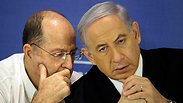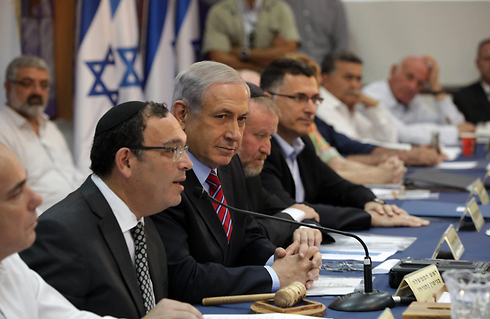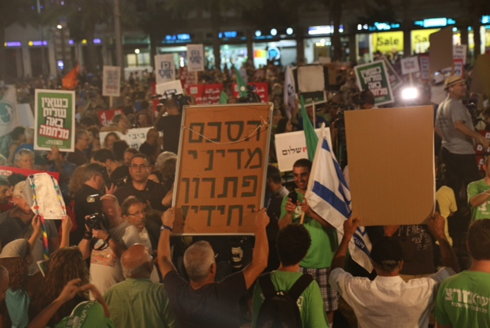
The stagnant and the whiny
Op-ed: Netanyahu and Ya'alon didn't want to lie, so they carefully formulated their speeches to accurately reflect the true outcome of the war: They didn't win.
As soon as the fighting stopped in Operation Protective Edge, the questions started. Here are two of mine:
What is victory?
"Hamas," Prime Minister Benjamin Netanyahu said at a news conference to summarize Operation Protective Edge, "had to agree to a ceasefire, without us having accepted even one of its demands." Netanyahu presented this situation as a victory, or at least as an achievement.
Then they grew angry - he, the defense minister and chief of staff - that their presentation of reality had not persuaded the public that Israel had won a massive victory. So what would have convinced them? The public was expecting to hear from the prime minister the following statement: "Hamas was forced to accept most of our demands in order for Israel to agree to a ceasefire."Then the defense minister would have gone on to explain: "We agreed to a ceasefire only after Hamas accepted our principle demands."
But Netanyahu and Ya'alon didn't want to lie. They carefully formulated their speeches to accurately reflect the outcome of the war, which can be summed in three little words: They Didn't Win.
Protective Edge, according to most of the Cabinet ministers, had been from the start an operation whose objective was to come to an end. This was achieved after 50 days of fighting.

The Israeli public thought, apparently wrongly, that Protective Edge had different goals, such as, for example, removing a fanatical and terrorist regime in Gaza whose underlying worldview is a commitment to Israel's destruction; for example, the demilitarization and reconstruction of Gaza; for example, laying the groundwork for a major diplomatic breakthrough without Hamas. Now it turns out this was a mere fantasy. The government was quick to return to its comfortable stagnation and peaceful impotence.
Israel's previous military conflicts have been characterized by international pressure on it to cease fire. This time, the pressure was on the enemy, Hamas, which had issued terms for laying down its arms. But the pressure worked, and Hamas agreed to end fire "without significant achievements". Its leaders did not receive in exchange promises for a sea port in Gaza, nor a chance to participate in the Big Brother reality show. They forfeited.
What is the left?
The events of the past two months have posed a challenge to the leftwing in Israel; a challenge of the kind described by German poet Bertolt Brecht in his piece "The Doubter":
Whenever we seemed
To have found the answer to a question
One of us united the string of the old rolled-up
Chinese scroll on the wall, so that it fell down and
Revealed to us the man on the bench who
Doubted so much.
Doubt has to be one of the defining characteristics of leftwing thinking, as opposed to right-wing conservatives. Expect the left to vacillate, to doubt, to criticize both reality and himself, to renew, to refresh and to resist all forms of incitement - not only racial, but class too.
According to these criteria, the Israeli left missed out on Protective Edge. Instead of travelling to the southern communities, offering their assistance, and demonstrating a caring presence, the left went to demonstrate - as usual - in Rabin Square in Tel Aviv. Instead of beginning a dialogue with hundreds of thousands of Israelis from the center and political moderate right, who have lost their way and their confidence, the left retreated and cooked in its own juice.
Instead of examining the profound changes on the Middle Eastern map, they continued to adhere to the ideals of the left of days of yore, even though they have become utterly irrelevant.
A conference of leftists at Tel Aviv University had the strange title of "how to think about the war?" The conference featured, among other things, scholarly analysis of IDF officers' speeches and banners of support for the IDF – an example of how the preference is for conversations about conversations to reality.
There were those leftists who escaped their confines - such as A.B. Yehoshua, who offered to open a dialogue with Hamas, such as Amos Oz, who with passionate literary elegance defended Israel's right to return fire, and such as Labor Chairman Yitzhak Herzog, who struggled to break free of the clichés of his party. But they were the minority; most of the left failed the test question asked in that same Brecht poem:
Always above all else: how does one act
If one believes what you say.
Instead of daring to bring innovative solutions, the Israeli left primarily busied itself during Protective Edge with whining.











